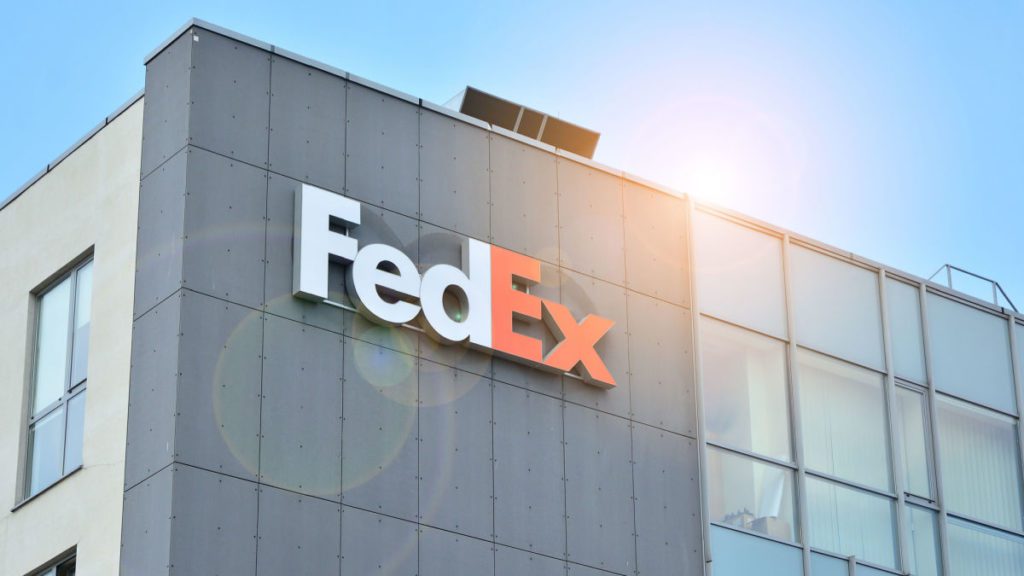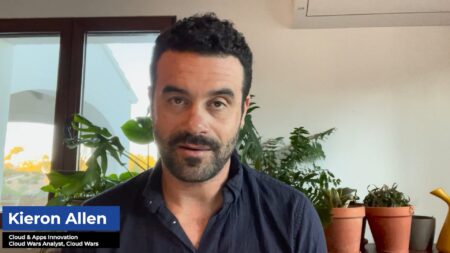
Widely recognized as one of the world’s most-successful CIOs, FedEx Executive VP Rob Carter has come out as a big fan of the new Microsoft-Oracle multi-cloud capabilities that give customers more choices, help them accelerate operations, and eliminate big volumes of low-value gruntwork.
In a video released by Oracle at the time of its breakthrough multi-cloud announcement with Microsoft last month, Carter offered some compelling perspectives in the broader context of FedEx’s overall business and the impact that the new multi-cloud agreement will have.
The endorsement from the highly regarded Carter is a big boost for what Oracle and Microsoft hope to achieve with their new multi-cloud offering, which was announced last month with considerable fanfare in a video conversation between Microsoft CEO Satya Nadella and Oracle chairman Larry Ellison.
As I remarked at the time, the Oracle-Microsoft collaboration is more than just a tech agreement between two big companies. Instead, I believe it will trigger a new wave of customer expectations and demands for all cloud providers to step up the level of seamless interoperability and blended capabilities as Oracle and Microsoft have put together. You can see my analyses of this far-reaching joint announcement in:
- My article called Larry Ellison and Satya Nadella Create the Multicloud Future;
- My related Cloud Wars Minute video headlined Larry Ellison and Satya Nadella Walk into a Bar
- My article headlined Larry Ellison Outlines Multicloud Revolution Sparked by Oracle and Microsoft.
To those far-reaching visions from two of the world’s top brains, we can now add the thoughts of FedEx’s Carter, who’s been with the company for almost 30 years and has won, in his 15+ years as CIO, every conceivable award and recognition.
You can watch the two-minute video to hear Carter’s comments in the context of some intriguing visuals, and here’s a transcript of his remarks — set off in italics and quotation marks — sprinkled with a few comments and reactions of my own.
FedEx CIO Executive VP Rob Carter on the Oracle-Microsoft Multi-Cloud
“FedEx connects the world. We have more than 700 aircraft, 200,000 service vehicles, and a half-million team members all over the world who connect people and possibilities.
“Data is the first-class citizen when we look at our technology stack these days. Having access to data in multiple clouds is really something we’ve always wanted.” My reaction: I suspect every CIO in the world has had that same aspiration, but FedEx has been out in front of most businesses in becoming a data-driven digital powerhouse in parallel with its vast physical-world capabilities.

“We’ve deployed a lot of technology into both OCI [Oracle Cloud Infrastructure] and Azure. For many years, we’ve deployed Oracle databases as a key part of our data strategy. We’ve been doing a lot of analytics these days in Azure. What this allows us to do is bring the two so much closer together.” My comment: In the old world, a database vendor might have said, “I’ll be damned if I’m going to do anything to help my customers use somebody else’s analytics tools in my database.” But that old-world thinking will prove deadly in the world of the customer-centric cloud.
“We’ve always believed in a multi-cloud architecture that allows us to put the right data and technology in the right cloud at the right time. It’s a value-creation capability that’s serving us really well all around the world.” My comment: these two sentences should be the foundation for every CIO’s strategy around multi-cloud.
“We’ve put platform services to work that allow us to move workloads around to the most-appropriate, most-economical, and highest-value implementation.” My comment: customers are putting a premium on choice, flexibility, and freedom — and there will be no going back on these requirements.
“The future is always a little unknown. Having multi-cloud capabilities really allows us to adapt quickly to whatever circumstances the world and the marketplaces bring to us.” My comment: adaptability and speed, flexibility and freedom—those are the new imperatives in the cloud.








